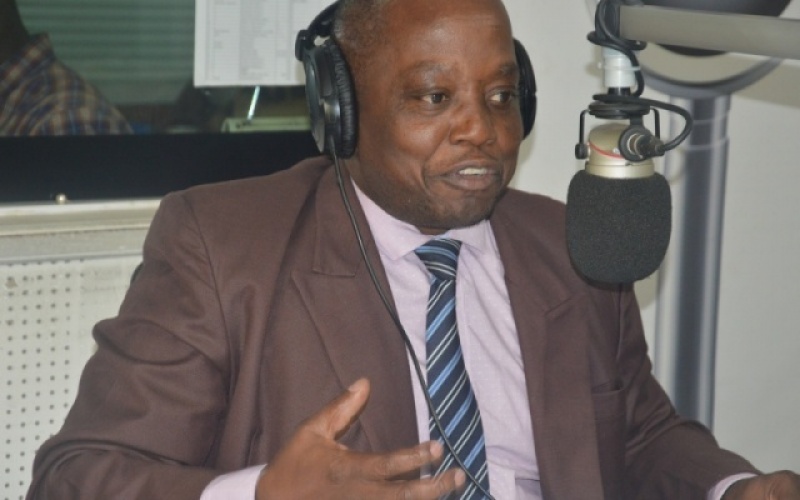
Auditor General Daniel Yaw Domelevo has said his office has surcharged eleven people found to have misapplied state funds.
Mr Domelevo announced the disallowance of the expenditure/surcharge at a press conference on Wednesday, 2 August in Accra.
Four people have so far been served and the remaining seven will be served in the course of the week.
They have 60 days after service of the surcharge/disallowance certificate within which to pay the money. Affected persons are also allowed to appeal against the surcharge or disallowance at the High Court within that same period.
The surcharge is in fulfillment of a promise by Mr Domelevo in February this year when he said his office will seriously start surcharging public officers who are proven to have misapplied state funds.
On February 21, Mr Domelevo, who was appointed by President John Mahama in December 2016 just before the National Democratic Congress (NDC) left office, told Moro Awudu on the Thinking Ahead segment of the Executive Breakfast Show, which is a collaboration between Class91.3FM and the Association of Chartered Certified Accountants (ACCA), that under his tenure, his office would elect to sanction abusers of public funds rather than lament to parliament about such crimes as has persisted in the past.
“If you are familiar with the 2013 Auditor General’s report, there was a lamentation to parliament that it seems we bring this to the attention of parliament every year but the more we bring it to your attention, the more it is happening. There is more or less ‘a culture of impunity’ – as you complain about it, they are doing it.
“So the Ghana Audit Service under my leadership has decided that we are going to change the game. From now going the Auditor General is not going to complain to parliament anymore. But if you are conversant with the constitution, under Article 187 (7), it says that: ‘The Auditor General, in the course of discharging his duties, if he comes across an expenditure which is illegal or contrary to law, may disallow the expenditure and surcharge the amount to the officer responsible.’
“I’ve started that,” Mr Domelevo said, adding: “I’ve put up a team in my office. With immediate effect, they are being trained somewhere next week and we are going to start surcharging people.”
He said the Audit Service Act “provides that when you are surcharged, you have 60 days to pay the money to government after which if you have not paid, if you are on government payroll, we can deduct it from your salary, so, we are going to attach people’s salary directly now, so we are not going to wait only to go to parliament, we are taking the fight to the field.”
Mr Domelevo, however, noted that he did not intend using the surcharge option maliciously.
“As much as the constitution allows us to disallow and surcharge people for not complying with the law, I’m also very careful not to abuse that right because people can use it to score their personal goals and maybe victimise people unduly, so, you have to do it professionally,” he explained.
“So we’ve put together a team [which is] going to be trained in how to investigate those cases where there’s suspicion of crime or abuse of funds, how to gather evidence and when all that is done, and a file is put together to my satisfaction, I have evidence on file that ‘yes this is an abuse’, and falls under the remit of the law, then I can go ahead and effect what we call the surcharge certificate.”
Speaking about why his predecessors never exercised that option, Mr Domelevo said: “As to why it has not been done in the past, I must say that I don’t want to account for my predecessors. The decision is theirs to do what the law says and if you are very conversant with that section, it says the Auditor General ‘may’, so, they did not and I am very happy to do it.
“‘May’ in law is different from ‘shall’. ‘Shall’ means it’s compulsory, no option but they exercised their discretion of reporting all the offences to parliament instead of taking the action themselves. I also want to exercise my option.”
Source:Ghana/AccraFM.com

































